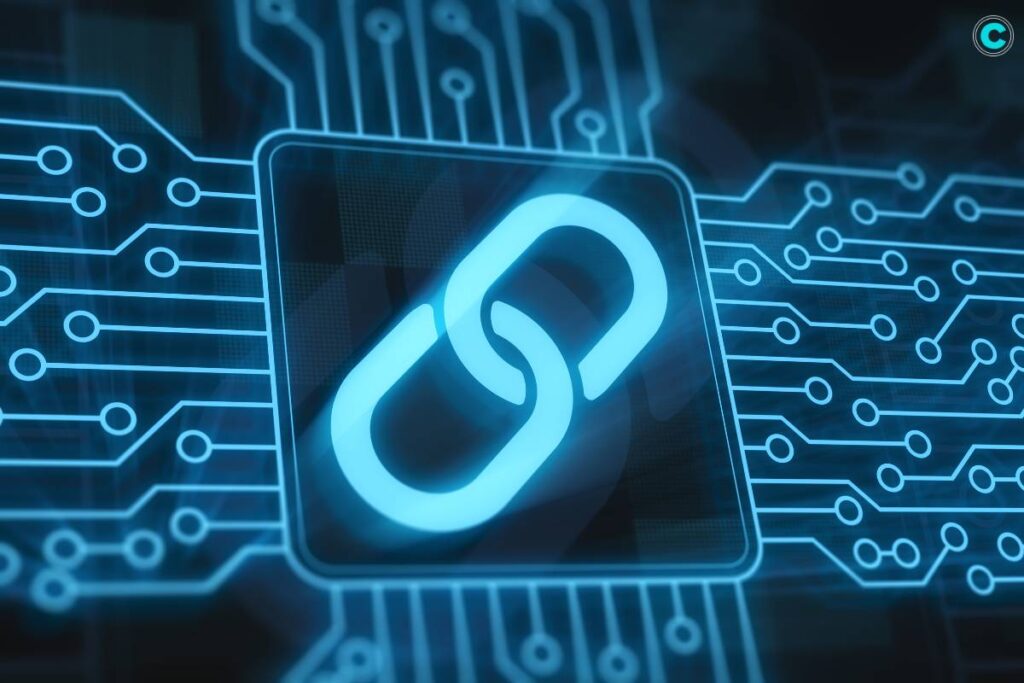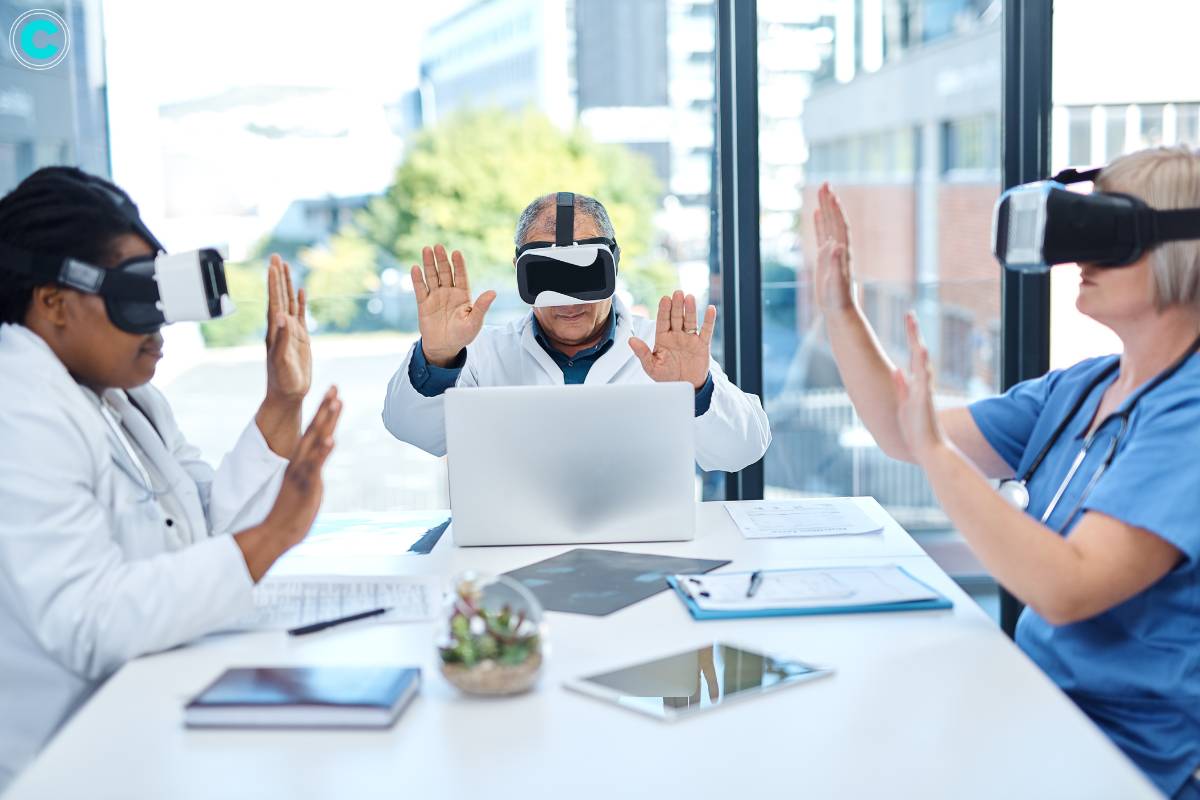In today’s digital age, the healthcare industry is undergoing a profound transformation, driven by technological advancements and innovative solutions. At the forefront of this transformation are blockchain healthcare projects, which leverage blockchain technology to address critical challenges and drive positive change across various facets of healthcare delivery, data management, and medical research. In this comprehensive guide, we will explore their impact, applications, and future implications for the healthcare landscape.
Understanding Blockchain Healthcare Projects: Driving Innovation and Efficiency
They encompass a diverse range of initiatives aimed at harnessing blockchain technology to improve healthcare outcomes, enhance data security, and streamline administrative processes. These projects leverage the decentralized and immutable nature of blockchain to create transparent, secure, and interoperable solutions for healthcare stakeholders.
One of the key advantages of blockchain in healthcare is its ability to ensure the integrity and security of patient data. By storing medical records and transactions on a distributed ledger, they can prevent unauthorized access, tampering, and data breaches, thus safeguarding patient privacy and confidentiality.
Moreover, blockchain facilitates interoperability by providing a common platform for securely exchanging medical data across disparate systems and organizations. This interoperability enables seamless care coordination, information sharing, and collaboration among healthcare providers, ultimately leading to better patient outcomes and experiences.
Exploring the Impact of Blockchain Healthcare Projects
They have emerged as a disruptive force in the healthcare industry, promising to revolutionize various aspects of healthcare delivery, data management, and medical research. These projects leverage blockchain technology to address critical challenges and drive positive change across the healthcare landscape, offering innovative solutions to improve patient outcomes, enhance data security, and streamline administrative processes.
One of the key areas where blockchain healthcare projects are making a significant impact is in data management and security. Traditionally, healthcare data has been stored in centralized databases, making it vulnerable to security breaches, data manipulation, and unauthorized access. However, blockchain technology offers a decentralized and immutable solution for storing and managing healthcare data, ensuring its integrity, privacy, and security.

By storing medical records and transactions on a distributed ledger, they prevent unauthorized access and tampering, safeguarding patient privacy and confidentiality. Each transaction recorded on the blockchain is cryptographically secured, making it virtually impossible to alter or tamper with the data without detection. This ensures the trustworthiness and permanence of healthcare data, providing patients and healthcare providers with a reliable source of truth.
Moreover, blockchain facilitates interoperability by enabling seamless exchange of medical data across disparate systems and organizations. Healthcare data is often siloed in proprietary systems that lack interoperability, making it difficult for healthcare providers to access and share patient information when needed. However, they create a common platform for securely exchanging medical data, promoting collaboration and information sharing among healthcare stakeholders.
Blockchain also has the potential to revolutionize supply chain management in the healthcare industry. The pharmaceutical supply chain, in particular, faces challenges such as counterfeit drugs, product recalls, and supply chain inefficiencies. Blockchain healthcare projects track the movement of drugs and medical devices from manufacturing to distribution, creating transparent and traceable supply chains. Each transaction recorded on the blockchain provides a verifiable record of the product’s journey, ensuring authenticity and reducing the risk of counterfeit products entering the supply chain.
Furthermore, blockchain facilitates innovation in clinical trials and medical research by enabling secure and efficient sharing of research data. Clinical trials involve collecting and analyzing vast amounts of data from multiple sources, including patients, researchers, and healthcare providers. However, data sharing and collaboration are often hindered by issues such as data privacy concerns, intellectual property rights, and data ownership. They create decentralized data marketplaces where researchers can securely access and share research data, accelerating the pace of discovery and innovation in medical science.
In addition to data management and research, these projects are driving innovation in patient empowerment and engagement. Blockchain-based identity management systems empower patients by giving them greater control over their health data and treatment decisions. Patients can securely access and share their medical records with healthcare providers, enabling personalized care and informed decision-making. By leveraging blockchain technology, healthcare providers can deliver more personalized and patient-centric care, leading to better health outcomes and improved patient experiences.
Blockchain healthcare projects have the potential to revolutionize various aspects of healthcare delivery, including:
1. Data Management and Security:

Blockchain technology enables secure and transparent storage of patient data, ensuring its integrity and privacy. By utilizing cryptographic techniques and decentralized storage, blockchain healthcare projects mitigate the risk of data breaches and unauthorized access, thereby enhancing patient trust and confidence in healthcare systems.
2. Supply Chain Management:
Blockchain can revolutionize the pharmaceutical supply chain by enabling transparent and traceable transactions. These projects track the movement of drugs and medical devices from manufacturing to distribution, reducing the risk of counterfeit products and ensuring patient safety.
3. Clinical Trials and Research:
Blockchain facilitates the secure and efficient sharing of medical research data, accelerating the pace of discovery and innovation. By creating decentralized data marketplaces and incentivizing data sharing, blockchain healthcare projects promote collaboration among researchers and drive advancements in medical science.
4. Smart Contracts and Automation:
Smart contracts, self-executing agreements coded on the blockchain, automate administrative processes such as claims processing, billing, and credentialing. These smart contracts streamline workflows, reduce errors, and minimize administrative overhead, leading to cost savings and efficiency gains for healthcare organizations.
5. Patient Empowerment:
Blockchain empowers patients by giving them greater control over their health data and treatment decisions. Through blockchain-based identity management systems, patients can securely access and share their medical records with healthcare providers, enabling personalized care and informed decision-making.
FAQs (Frequently Asked Questions)
1. What are blockchain healthcare projects?
These projects are initiatives that leverage blockchain technology to address challenges and drive innovation in the healthcare industry. These projects aim to improve patient outcomes, enhance data security, streamline administrative processes, and foster collaboration among healthcare stakeholders.
2. How do blockchain healthcare projects improve patient outcomes?

They enhance patient outcomes by ensuring the security, integrity, and interoperability of medical data. By facilitating seamless data exchange, transparent supply chains, and personalized care delivery, these projects enable healthcare providers to make more informed decisions and deliver better outcomes for patients.
3. Are blockchain healthcare projects compliant with healthcare regulations?
Yes, many projects are designed to comply with existing healthcare regulations, such as HIPAA in the United States and GDPR in the European Union. These projects prioritize data security, privacy, and regulatory compliance to ensure patient confidentiality and legal adherence.
4. How do blockchain healthcare projects address data privacy concerns?
They employ cryptographic techniques, such as encryption and hashing, to protect patient data and ensure privacy. By decentralizing data storage and implementing robust access controls, these projects minimize the risk of unauthorized access and data breaches, preserving patient confidentiality.
5. What role does interoperability play in blockchain healthcare projects?
Interoperability is crucial to enable seamless data exchange and collaboration among healthcare providers, systems, and stakeholders. By establishing common standards and protocols for data sharing, interoperable blockchain solutions facilitate more efficient care coordination, information exchange, and patient engagement.

Blockchain How Does It Work? Its Applications, and Future Potential
Blockchain technology, known for its transparency, security, and decentralization, is a potent force in the digital landscape.
Conclusion:
Blockchain healthcare projects represent a paradigm shift in the way healthcare is delivered, managed, and accessed. By harnessing the transformative power of blockchain technology, these projects have the potential to revolutionize healthcare delivery, improve patient outcomes, and drive innovation across the entire healthcare ecosystem. As blockchain continues to evolve and mature, the future of healthcare looks brighter than ever, with endless possibilities for innovation, collaboration, and positive impact on patient care and well-being.






